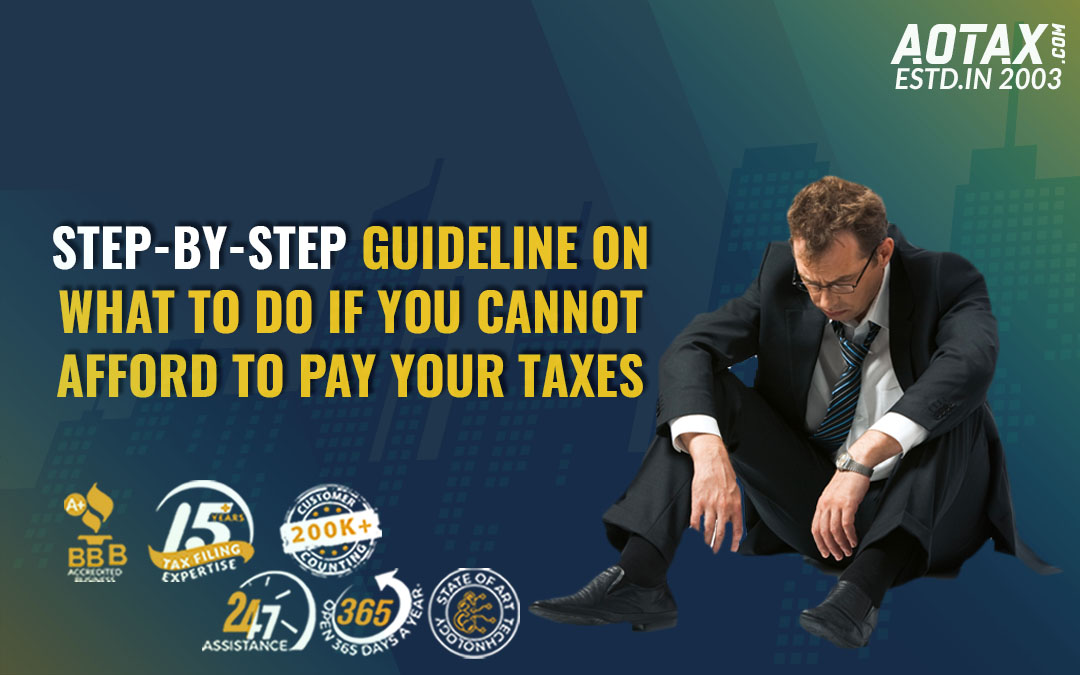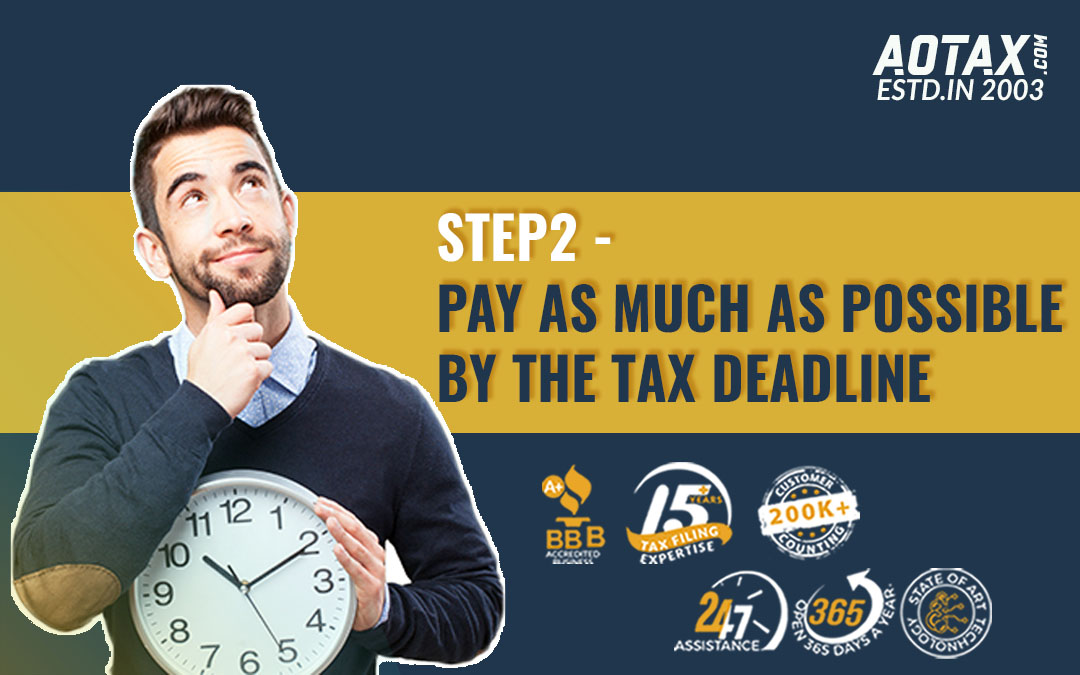
Step-by-step guideline on what to do if you cannot afford to pay your taxes
Step-by-step guideline on what to do if you cannot afford to pay your taxes
The IRS had extended the tax return filing and payment deadline until 15th July 2020 for the Americans to alleviate the financial crisis faced by millions of Americans due to the pandemic COVID-19. However, the pandemic has led to the unemployment of millions and millions of Americans. So, even with the extension in the return filing and tax payment deadlines, it is quite difficult for some Americans to pay their taxes on time.
The IRS has a simple reminder for the taxpayers who cannot pay their entire amount of federal taxes which they owe. They should file their tax returns on time and pay as much as possible. By this, the interest and penalties of taxpayers would reduce and there would not be much accumulation of interest to pay back.
If a taxpayer plans to pay his taxes as much as he can afford, then the IRS has some convenient methods to do this i.e. by IRS Direct Pay Method, Electronic Federal Tax Payment System (EFTPS), Electronic Funds Withdrawal, Debit or Credit card, or by Check/Money Order, etc.
However, for those taxpayers who feel payment of taxes are unaffordable at the moment; they can follow a detailed plan.
Step1 – File by the new 15th July deadline even if it feels difficult to afford the payment on time

As said earlier, due to the pandemic COVID-19 the deadline to pay the Federal taxes has been pushed to 15th July 2020. However, with this extra time, taxpayers should not wait much more to file their taxes. Taxpayers must consult tax professionals for filling the forms. By this, the credits and deductions to lower the bill can be found out easily.
Many taxpayers might consider the option of the deadline extension. However, the extension would provide more time for filing the tax returns but not for
paying the taxes. Even if there is an extension, the tax payment must be done on time. So, an extension should only be filed by the taxpayers if due to some reason the taxpayer is not able to file the tax returns on time.
Step2 – Pay as much as possible by the tax deadline

This is also recommended by the IRS that the taxpayers should wait till the deadline, try to arrange for the tax amount, and pay off as much as possible. Some taxpayers even prefer discarding some of their unwanted materials in exchange for cash which can be utilized in payment of their taxes which are due.
Taxpayers can contact the IRS on the toll-free number to discuss alternate payment options. IRS might help the defaulter taxpayers with other payment options like a short-term extension to pay the taxes, an
agreement for installment, an offer in compromise, or by temporary delay in the collection by reporting that the taxpayer’s account is currently not collectible until the taxpayers can afford to make the payment.
Step3 – Keep paying the taxes you owe even after filing

Even after Tax Day, taxpayers would have a period of around 1 month or 2 months before the IRS would contact them about the rest of the tax payment. During this available time of 1month or 2 months, taxpayers should try to pay out as much as possible to reduce the balance left out.
In case the taxpayers are not able to make their complete payment by this time, the IRS would suggest options for making the rest of the payments in monthly installments.
Step4 – Rectify the problem

You should approach a tax professional and try to work with him or his team to ensure that you are not stuck with the problem of unaffordability related to tax payments. This can be feasible either by setting aside profits from a side business or by the adjustment of withholdings from your paychecks.
Your issues can be best identified and rectified by the tax professionals so that these issues are avoided in the future.
Conclusion
Hence, you can follow these steps and try to pay off as much tax as you can. Avoiding the aggregation of penalties is important to avoid any further financial and economic hardships.

Recent Comments